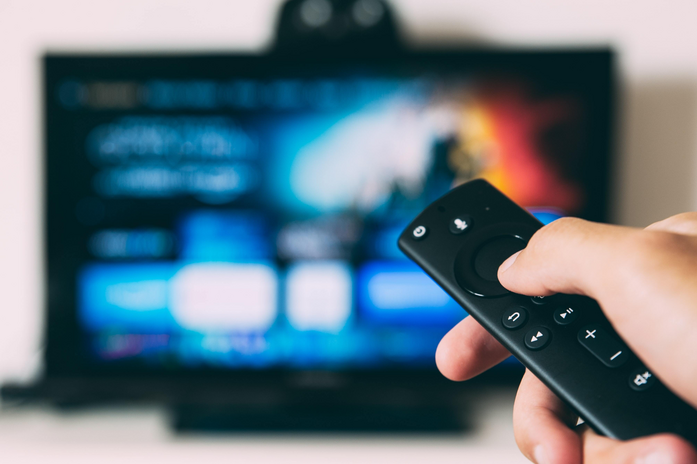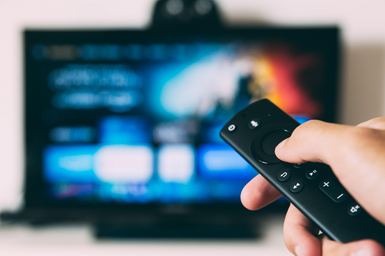Sitcoms are a widely beloved form of media. They have been capturing quite a considerable audience for decades now. In the 80s, it was Full House and The Cosby Show that popularly defined the category; the 90s had Seinfeld, FRIENDS and The Fresh Prince of Bel-Air which achieved indomitable legacies; and the 2000s saw the emergence of The Big Bang Theory and The Office whose cultural relevance needs no explanation. All of these have built remarkable reputations as some of the best shows of all time. However, the one sitcom that I consider to be truly excellent in multiple ways is the 2009 debutant Modern Family. The show has earned a plethora of well-deserved accolades throughout its run. However, in my humble opinion, it proves to be successful in comedy in a manner that is distinct from many of its predecessors as well as contemporaries.
The concept of Modern Family was spawned by Christopher Lloyd and Steven Levitan while they were chatting about their household stories. From this discussion, the idea of a mockumentary-style sitcom centered around three interrelated but different nuclear families was constructed. The family sitcom was obviously not a novel idea by the time, but Lloyd and Levitan created a narrative basis that was not only unique but was also congruent with our time’s societal awareness. The very American Jay is married to a much younger Columbian woman named Gloria who has a teen son Manny; his understated son Mitch has an adopted Vietnamese daughter named Lily whom he raises with his flamboyant partner Cam; and we get our ‘traditional’ family with Claire, Jay’s perfectionist daughter, who has three kids – Haley, Alex, and Luke – with her easy going and fun-loving husband Phil. They are all different from each other in multiple ways but have to adjust with each other due to familial bonds. Such a foundation of diverse characters provided for fresh, humorous, and riveting storytelling paths.
The viewers’ enticement from this bedrock decision can also be attributed to the closer representation of our widespread evolving realities and the concomitant promotion of their acceptance. A favorable characteristic of the show is its portrayal of gay couples through Cam and Mitch. At the time of the show’s premiere, LGBTQ+ needed a proper share of representation in mainstream media so as to catalyze their normalization. Seeing a homosexual couple getting meaningful arcs and substantial screen time without just being momentary comedy relief in mainstream media had to be counted as a win. Cam and Mitch sharing the first gay kiss on primetime television and their wedding in the Season 5 finale garnering viewership of over 10 million are significant achievements for the community. Them traversing through parenthood with a child from a different race was also an important topic.
Other themes, albeit less serious, are also followed that showcase real-life issues: Jay tries to
come to terms with the generation gap between him and Gloria as well as strike a genuine relationship with his stepson Manny; Claire and Phil struggle to understand their kids’ changing
behaviors and worry about their futures; the Pritchett-Dunphy clan’s children tackle the struggles of growing up and there is so much more. Such is the magic of sitcoms – it lies in the fact that they don’t need exaggerated or surreal elements to purvey exciting content. Instead, they set up believable worlds and utilize them to entertain the audience. The relatability of these shows is what makes them special and Modern Family wholeheartedly tries to commit to that endeavor by undertaking contrasting actualities of ‘modern families’.
The ardent cleverness of the writing work is an aspect that cannot be ignored in the slightest. The primary use of misunderstandings, which could feel repetitive at times, still produces hilarious scenarios – Claire and Gloria’s chat about “cupcakes” in ‘Caught in the Act’ will never not be funny. Incorporation of double entendre through deft dialogues and monologues overlapped with conflicting visuals (like Phil’s regarding optimism in ‘The Big Game’) are what make up some of my favorite moments. Conjuring awkward situations brings realistic humor and the abundance of witty one-liners make the show all the more memorable. Another characteristic that proves remarkable is the proper adoption of the term ‘modern’. The technological aspect of the 21st century is not ignored and is masterfully infused. We have Phil as the Gadget Nerd of the clan but it is the episode ‘Connection Lost’ which is filmed entirely on Apple devices that shows the dedication of the makers. The writing also impresses with the fact that the characters are layered and not caricatured by a single dominant personality trait later on in the series (looking at FRIENDS).
A very common employment in sitcoms is that of laughter tracks or live audiences. These tactics, for whatever reasons, might seem favorable to some, but hinder the smoothness of the narrative flow and seem to instruct the viewers as to when to laugh because the jokes just aren’t that good. Modern Family’s dismissal of these is a definite plus for me. The immense chemistry the actors have with each other and their brilliant comedic timing excels in such a setup. However, no matter what huge amounts of comedy were stuffed in it, Modern Family was also able to squeeze in itself a lot of warmth. Its charm lied in the overall comfort it guaranteed at the end of any of its episodes. Lloyd told The Guardian, “Comedy had become this thing that was easily consumed, but ultimately not very nutritious. There was lots of snarkiness and cynicism but nothing uplifting, nothing good for the soul… We wanted our show to have some heart… we wanted moments of drama and emotion.” And there were many of them. My favorite is Jay and Mitch trying to build a proper father-son relationship despite their differences and the former attempting to overcome his anachronistic views for the same. This was a theme that gave us some very sweet moments – like when the older man booked his country club at the last moment for the younger’s wedding and walked him down the aisle after he had expressed doubts regarding the whole event. Instances like these can be observed amongst other characters as well. At the conclusion of each episode, the audience, whether young or old, is left with lessons and advice about life without the conveyance seeming preachy. Teachings like, “It’s gonna be tough to say goodbye. Nobody loves change. But part of life is learning to let things go” and “90% of being a dad is just showing up” stay with you for a long time, making the show truly special.
Now, I am not saying that Modern Family is THE peak of excellence of comedic media. It does have its shortcomings. But at the same time, it vehemently tries to be the best it can be on all fronts. There is a definite effort on its part. It shows. And that is something that deserves recognition.


